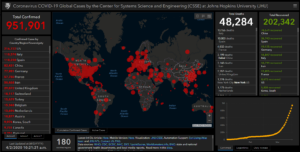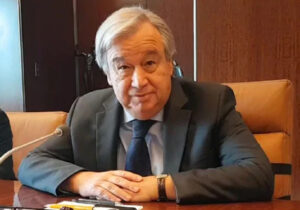Saudi Crown Prince Mohammed bin Salman told the US he considered murdered journalist Jamal Khashoggi to be a dangerous Islamist, media reports say.
Prince Mohammed’s reported phone call to the White House came before Saudi Arabia admitted he had been killed inside the Saudi consulate in Istanbul.
Saudi Arabia has denied the reports in the Washington Post and New York Times.
A Saudi national and well-known critic of Saudi rulers, Khashoggi was killed and his body dismembered on October 2.
His remains have not yet been found.
On Friday, Yasin Aktay, an adviser to Turkey’s president, told Hurriyet newspaper that Khashoggi’s body “wasn’t just cut up”, but that the murderers “got rid of the body by dissolving it”.
His fiancée, Hatice Cengiz, has called on world leaders to “bring the perpetrators to justice”, in an editorial for the Guardian and other newspapers.
Saudi Arabia denies its royal family was involved and says it is “determined to find out all the facts”.
Late last month, Prince Mohammed said that “the crime was painful to all Saudis”.
During the call with President Donald Trump’s son-in-law Jared Kushner and National Security Adviser John Bolton, Prince Mohammed said Khashoggi had been a member of the Muslim Brotherhood, a transnational Islamist organisation, the Washington Post reported.
The phone call is reported to have taken place on October 9, a week after Khashoggi disappeared.
Prince Mohammed also reportedly urged the White House to preserve the US-Saudi alliance.
According to a New York Times report, friends of Khashoggi said he joined the Muslim Brotherhood as a young man, but later became inactive.
Following the Arab Spring uprisings in 2011, Kashoggi expressed support for Islamist groups that had gained power in several countries.
However, his family denied he was a member of the Brotherhood and said the murdered writer had himself denied this repeatedly in recent years.
“Jamal Khashoggi was not a dangerous person in any way possible. To claim otherwise would be ridiculous,” his family said in a statement to the Washington Post.
There is still no consensus on how Khashoggi died.
He entered the consulate to sort out documents for his marriage to his Turkish fiancée, Hatice Cengiz.
On Wednesday Turkey said he was strangled immediately after entering the consulate and his body dismembered “in accordance with plans made in advance”.
Turkish media had previously quoted sources as saying Turkey had audio recordings proving that Khashoggi had been tortured before being murdered.
Saudi Arabia has changed its account of what happened to Khashoggi.
When he first disappeared, it said Khashoggi had walked out of the building alive. It later admitted he had been murdered, saying the killing was premeditated and a result of a “rogue operation”.
It has arrested 18 suspects, who, it says, will be prosecuted in Saudi Arabia. Turkey wants the suspects to be extradited.
Turkey has steered away from publicly blaming Saudi Arabia for the killing.
President Recep Tayyip Erdogan spoke to Saudi King Salman last week, and the two agreed to continue co-operating in the investigation.
Saudi Arabia has faced a backlash over the death, including from its allies, who have called for answers.
President Trump has said he is “not satisfied” with the Saudi account. However, he also said he was unwilling to sacrifice lucrative arms deals with the country.
Although their US visas have been revoked, Secretary of State Mike Pompeo said it would be a “handful more weeks” before the US knew enough to impose sanctions on individuals involved in Khashoggi’s killing.
Mr Pompeo said the US had “deep and long-term strategic relationships” with Saudi Arabia and said “we intend to make sure that those relationships remain intact”.
On Wednesday, France’s Foreign Minister Jean-Yves Le Drian said Khashoggi’s death was a “crime” and “odious”.
He said France was not “dependent on our economic relations with Saudi Arabia” and the country would impose sanctions, but no details were given.
UK Foreign Secretary Jeremy Hunt also said it was an appalling act, adding that it had “possibly” given the US and the UK a chance to put new pressure on Saudi Arabia over other issues.
Earlier, the US called for a swift cessation of hostilities in Yemen, where a Saudi-led coalition has been fighting rebels supported by its arch-enemy Iran.
In an editorial published in the Guardian and the Washington Post, Ms Cengiz said Khashoogi had just bought a house and wished to start a family.
She described the “anguish” she experienced since his “brutal, barbaric and ruthless” death.
“We must all send a clear message that authoritarian regimes cannot kill journalists ever again.”
She called on governments around the world to take action to reveal the truth, accusing the United States of taking a position “devoid of moral foundation.”
“If the democracies of the world do not take genuine steps to bring to justice the perpetrators of this brazen, callous act – one that has caused universal outrage among their citizens – what moral authority are they left with?,” she asked. -BBC




